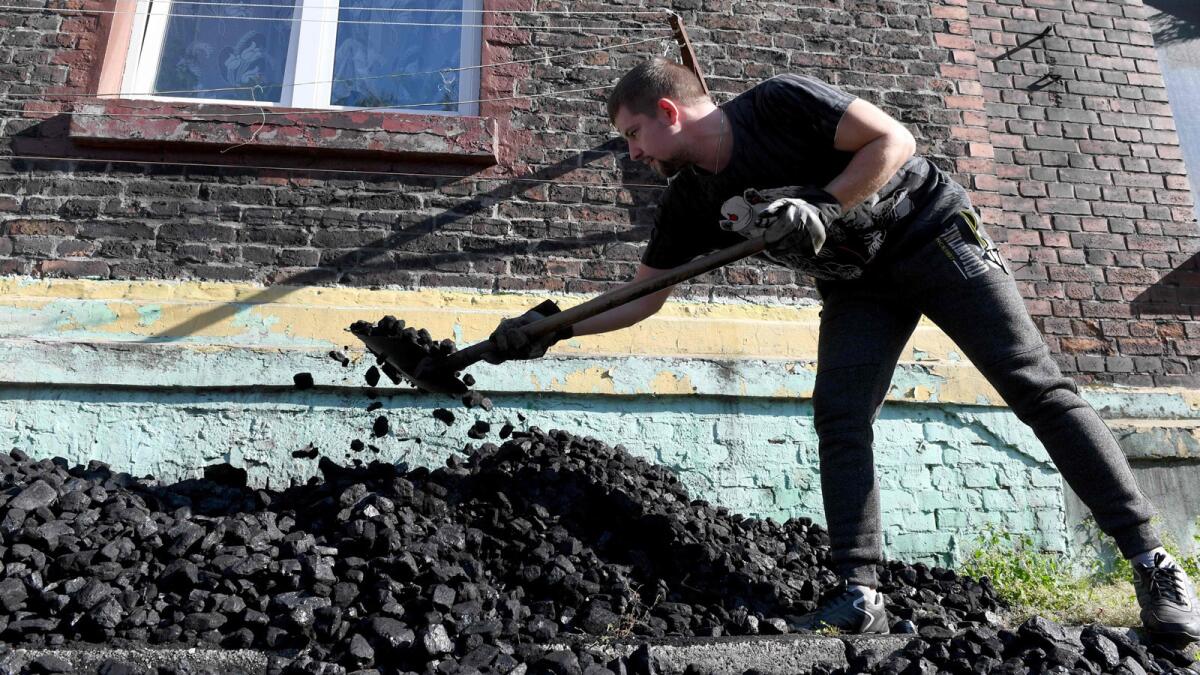Three years after Paris accord, climate talks begin under new political and scientific realities

- Share via
Three years after forging the landmark Paris climate accord, world leaders are meeting again to decide how to turn emissions-cutting pledges into action.
But as talks kick off this week in Katowice, Poland, a disconnect between climate science and global politics threatens the ability of nearly 200 countries to come together to reduce greenhouse gas emissions.
At the same time that scientists are issuing increasingly dire warnings of intensifying climate change and the perils of inaction, President Trump and other key world leaders are pursuing nationalist and fossil-fuel friendly policies that make global warming worse.
“It’s a strange moment we’re in, where the science and people’s everyday experience are showing how important this problem is, and yet the politics, not just in the U.S. but around the world, are undermining international efforts,” said Michael Wara, director of the Climate and Energy Policy Program at Stanford University.
The dynamic is not just evident in the actions of Trump, who has attacked climate science and vowed to pull out of the Paris accord as part of his “America First” agenda. Leaders from other countries that previously supported the agreement, from Australia to Brazil, appear to be following in his footsteps and backing away from their commitments.
“It will be interesting to see how this local distaste for multilateralism plays against a growing understanding of the urgency of the problem,” said Samantha Gross, an energy and climate expert at the Brookings Institution.
The 2015 Paris agreement was a breakthrough, with nations across the world for the first time committing to keep global warming “well below” 2 degrees Celsius and to pursue efforts to limit the rise to 1.5 degrees. Those international commitments to slash planet-warming emissions were a vital first step toward avoiding the most devastating effects of climate change, but the deal left many details to be firmed up later.
The negotiations beginning this week at the Conference of the Parties to the United Nations Framework Convention on Climate Change, or COP24, focus on those technical matters, including the rules by which countries track their greenhouse gas emissions and report their progress to the rest of the world.
Crafting a so-called rulebook is a central mission of the talks “that’s essentially needed to turn Paris from an accord on paper into a working, operational and effective regime,” said Todd Stern, who led the U.S. effort to negotiate the agreement under President Obama and is now a senior fellow at the Brookings Institution.
Experts following the conference said its importance has grown in light of the geopolitical threats to the Paris agreement and the spate of recent reports warning that time is running out.
The planet has already warmed by about 1 degree Celsius since pre-industrial times as a result of the human-caused buildup of greenhouse gases, and scientists say we are already experiencing the consequences in the form of rising sea levels, more intense hurricanes and wildfires and an array of other problems.
An October report by the Intergovernmental Panel on Climate Change warned that some of the most devastating effects of global warming will hit harder and sooner than previously expected and are likely to reach a tipping point without “far-reaching and unprecedented changes” to cut emissions within the next 12 years. A U.N. report released Tuesday found few nations are on track to meet the Paris targets, which themselves fall significantly short of achieving the emissions cuts needed to keep warming within levels tolerable to humanity. Without drastic, large-scale action, the assessment found, the planet is likely to see 3 degrees Celsius of warming by the end of the century.

Though the Trump administration still intends to withdraw from the Paris agreement as soon as it’s eligible to in 2020, it is sending a delegation to participate in the COP24 negotiations “in order to ensure a level playing field that benefits and protects U.S. interests,” the State Department said in a statement Thursday.
Trump’s disavowal of the Paris agreement, coupled with the ongoing trade dispute with China — the most important other party in the negotiations — weakens the U.S. position going into the conference, Wara said. Another obstacle, he said, is the administration’s push to undo regulations to fight climate change while at the same time expressing unwillingness to assist poor countries in reducing their emissions.
“That’s a very toxic message for the U.S. to bring to this meeting, but I suspect it is what we’ll be articulating as our viewpoint,” Wara said. Though it’s possible countries will emerge from the two-week conference with a meaningful agreement that advances the Paris deal, Wara added, “the worst case would be that no one agrees on anything and we have a real breakdown in the conversation.”
Trump recently dismissed the dire conclusions of a report by 13 federal agencies in his own administration that found climate change is causing widespread damage to the nation’s environment, health and economy that will intensify over the century without swift action. The latest installment of the congressionally mandated National Climate Assessment found that global warming, if left unchecked, will shrink the economy by hundreds of billions of dollars annually by the end of the century.
“I don’t believe it,” Trump said in response, without offering evidence to counter the findings of hundreds of leading climate scientists.
Trump’s comments continued a push by his administration to attack the scientific consensus on climate change while moving to allow more pollution from cars, trucks and coal-fired power plants by unraveling Obama-era environmental regulations.
Some are optimistic, nonetheless, that the new round of climate talks can bring meaningful progress.
Helen Mountford, vice president for climate and economics at World Resources Institute, a Washington-based research organization, said one other motivating factor could be increased pressure from those outside of government in business and finance who see economic opportunities in transitioning from fossil fuels to renewable energy sources such as wind and solar.
“On the ground, there’s good reasons to believe countries can and should step up action,” she said, “because we’re starting to see markets shift and technologies become cheaper.”
More to Read
Sign up for Essential California
The most important California stories and recommendations in your inbox every morning.
You may occasionally receive promotional content from the Los Angeles Times.











